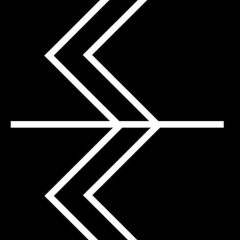Today I’d like to bring attention to one of the coolest projects I’ve seen in quite some time. It’s called Feral Atlas, and it is the brainchild of Anna Lowenhaupt Tsing, the author of one of the most important works of anthropology in recent memory, The Mushroom at the End of the World.
“Every event in human history has been a more-than-human event. When hunter-gatherers burn the land, they cooperate with herbs that seed quickly and grasses that sprout after fires, attracting game. Inside us, intestinal bacteria make it possible for us to digest our food. Other things, living and nonliving, make it possible to be human. Yet powerful habits of thought over the last centuries have made this statement less than obvious. With the arrival of the idea of the Anthropocene, we move away from such thinking to reconsider how human and nonhuman histories are inextricably intertwined.
Convening over one hundred researchers to trace a whole range of such intertwinements, Feral Atlas offers an original and playful approach to studying the Anthropocene. Focused on the world’s feral reactions to human intervention, the editors explore the structures and qualities that lie at the heart of the feral and make the phenomenon possible. This publication features original contributions by high-profile artists, humanists and scientists such as Amitav Ghosh, Elizabeth Fenn, Simon Lewis, Mark Maslin, and many others.”
https://www.sup.org/books/title/?id=30693
“Feral Atlas is one of the most unusual book projects that I have seen or been a part of (it includes my “field report” about colonial era sewer rats in Hanoi). It is a digital book published by Stanford University Press in 2020 and can be accessed for free here.
Exploring Feral Atlas is like taking a walk on the wild side as there is no structured or required way to enter into its various conversations. Instead, you are invited to explore at your own risk. There are luminary essays by Sven Beckert, Amitav Ghosh, Gabrielle Hecht, Karen Ho, Simon L. Lewis and Mark A. Maslin, David M. Richardson, and Will Steffen; field reports by dozens of scholars from the humanities and sciences; and art ranging from video to poetry to music. Informative and thought-provoking, alternately humorous and emotionally gut wrenching, and provocative in both form and content, Feral Atlas invites you to go wild.”
https://newbooksnetwork.com/feral-atlas
Here’s the introductory video:
This project, a curious, searching combination of academic rigor, aesthetic beauty, and troubling contradictions is exactly the kind of attitude necessary to confront the future of ecology. The alternative, of course, is the incoming CNN news cycle. They’re gearing up to scare the piss out of you 24/7, same as they did with the virus:
I’m not really concerned with large news organizations’ ability to influence who gets elected to the presidency, which is obviously the focus of this very obviously conservative Boomer video. Instead, I want to focus on their ability to create a completely unproductive aura of fear around climate change that leads to large government interference, instead of cultivate a personal, local curiosity.
In the video, CNN’s Technical Director (who seems to really believe in what he’s doing, for what that’s worth) says that CNN’s next “target” after the COVID coverage (which he says people are becoming “fatigued” by) will be climate change. This means 24/7 coverage of ice caps melting, every possible disaster you can think of blared across the screen constantly. This will undoubtedly lead to a populace so fully terrified that we’ll be through to the other side, the technocratic boot will fully stamp down and we’ll be in the panopticon, etc. etc. Doesn’t seem to be much we can do about it at this point.
However, a good preparation for this, I think, is to spend some time here with Tsing et al’s website. To really cultivate a healthy, generative relationship to ecological disaster. It is looming, and it is a big issue, but we’re not going to do anything about it by applying the same response that we did to COVID, ie “I’m going to hide in my home while poor people deliver me food.”
Now isn’t the time to hide from this stuff. It’s time to engage with it. And I think Feral Atlas is a great first step, a uniquely designed website packed with information that can help us understand the interconnectedness of things, our response-ability within those connections, and how to think with climate change, and how to approach more-than-human interaction.
Have fun!

“Feral Atlas.” If only I could come up with a title like that.
LikeLike